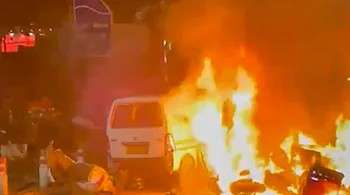The deadly blast near Delhi’s Red Fort metro station on November 10 has sparked fears of a renewed India-Pakistan confrontation, with intelligence sources warning of possible links to Operation Sindoor 2.0; a reported retaliation campaign by Lashkar-e-Taiba (LeT) operatives to avenge past counter-terror operations. The explosion, which killed at least ten people and injured over twenty, is being probed under anti-terror laws, as investigators trace cross-border footprints pointing to militant networks active in Bangladesh and Pakistan.
Within hours of the Delhi attack, Islamabad too witnessed a suicide bombing that left 12 dead, deepening suspicions of coordinated destabilisation efforts in the subcontinent. Prime Minister Narendra Modi condemned the Delhi blast as a “well-orchestrated conspiracy” and vowed that those behind it would “face the full force of justice.” Intelligence officials believe the strike bears hallmarks of LeT’s renewed strategy under Op Sindoor 2.0, intended to revive militant operations after recent setbacks.
Security has been tightened across northern India and along the western borders, with surveillance drones and paramilitary deployments in key districts. Analysts caution that if the Delhi attack is conclusively tied to Pakistan-based groups, diplomatic tensions could spiral rapidly. Whether Op Sindoor 2.0 marks the beginning of another India-Pakistan flashpoint or remains a contained threat now depends on New Delhi’s next decisive move.

